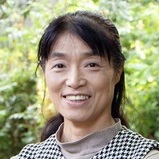Profile: Masumi Izumi

Masumi Izumi is a professor of North American Studies in the Department of Global and Regional Studies at Doshisha University, Kyoto, Japan. Her academic expertise is in Japanese migration to North America, as such she has focused on Japanese American and Japanese Canadian histories, as well as race relations.
Masumi first became involved with Past Wrongs, Future Choices through her connections with Landscapes of Injustice, and her working relationship with PWFC co-director, Jordan Stanger-Ross. After Landscapes finished, Masumi felt that the project built an “amazing database that can be used not only by the Japanese Canadian community but anyone interested.” This database did a “really amazing job making a kind of obscure government archives, such as the records of the Custodian of Enemy Property, accessible to the general public, so that we can learn about past wrongs to make better choices when tensions arise next time.” Based on how successful and important she felt Landscapes was, when the opportunity to become integrally involved in PWFC, Masumi dove right in.
Because of her work in Japanese North American history, she was the perfect candidate for our residency program. Her work in Victoria continued the research she did in Japan and the US focusing on transnational history. The resulting paper What Can Transnational History Do?: On Archiving and Reading Japanese American Experiences in the “Tule Lake Stockade Diary,” 1943-1944, discusses Japanese American wartime incarceration and addresses the challenges in the translation of the Tule Lake Stockade Diary. The Diary was written in Japanese during World War II, so the translation needs to be contextualized. This was part of what Masumi was trying to do in “explaining how the internees affected by Japanese culture saw the world, being raised in Japan in the 1920s and 1930s. The world kept changing and I try to understand how they expressed themselves in their wrongful confinement.” Likewise, language also needs to be contextualized, and Masumi “tried to interpret what the internees were really saying, where sometimes there seemed to be gaps or misunderstandings in our understanding of these documents, because our interpretations based on certain assumptions about the Japanese North American community.” Tragedies happened because of racism but things got worse because of “both a generational gap and a transnational gap.” In short, Masumi “is trying to provide transcultural interpretation of what these internees were writing,” because she thinks “that expands and deepens our understanding of their experience during World War II.”
Masumi enjoyed her time in Victoria working with the other residents. While comfortable in the Asian North American studies community, the variety of residents made this experience different than her others. Namely, because not every resident was solely a scholar, there was much more diversity. This was highlighted by working with Elysha Rei and Rachel Iwaasa (artists in residence), which Masumi found “very refreshing and inspiring” because “being someone who can represent history in something other than academic language is important even for a scholar.
The fact that I cannot express in words what they expressed proves that what the residency generated was so special. Elysha and Rachel conveyed something that I cannot describe in words, but you feel it or you understand it when you see it.” Masumi also enjoyed exchanging ideas with all the residents from different disciplines. Overall, Masumi felt that the environment in the program was “one of trust which allowed everyone to be so open, and this meant that we had a community.”
Masumi felt that aside from being in Victoria to work with the other residents, being based at the University of Victoria offered a unique workplace because of the conscious effort made by PWFC and the university to respect that it is based on indigenous land. Being in BC allowed Masumi to think about the ways that Japanese North Americans experience interacts with that of the indigenous peoples, which is “something the younger generation has been more conscious of – not thinking of land as someone’s possession but something that people live on.”
This article was written by Kiri H. Powell, from an interview with Masumi Izumi.

 Instagram
Instagram